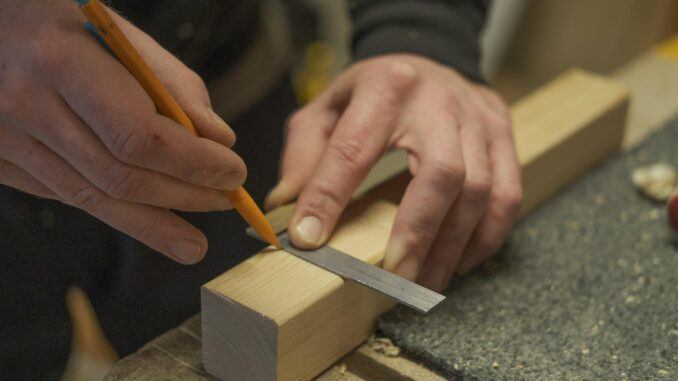
Getting into woodworking is like opening a door to endless possibilities. It’s not just about making furniture. It’s about creating something with your own hands that carries your personal touch. Many folks start as a hobby and find themselves lost in the craftsmanship. But what makes woodworking truly special? It’s that sense of accomplishment when you transform raw pieces of wood into something beautiful and functional.
Advantages of Ebay Workshop Tools
When you begin your journey, understanding why certain tools are essential is key. They’re not just instruments; they’re extensions of your creativity. Each tool has its own role in shaping, carving, and joining wood. Think of them as companions on your path to becoming a skilled craftsman.
Craftsmanship involves a balance of artistry and precision, and tools play a crucial part in this dance. From a simple chisel to a complex lathe, each tool helps you shape reality from imagination. It’s all about knowing which tools to use and when, to bring your vision to life.
Remember, woodworking is a journey, not a sprint. Starting with basic tools and gradually adding more advanced options as you grow more skilled is a smart way to expand your abilities. This approach ensures you don’t get overwhelmed while developing a deeper understanding of each tool’s unique contribution to your projects.
Must-Have Tools for Every Woodworker
When you’re setting up your first woodworking space, choosing the right tools can make all the difference. These essentials lay the groundwork for all your future projects. Let’s start with the workbench—it’s the ultimate foundation. Think of it like the kitchen table of your workshop, the place where all the action happens. A sturdy, flat workbench provides stability, making every cut and carve more precise.
Saws are your best friends when it comes to cutting wood. But choosing the right type can be tricky. A crosscut saw is perfect for cutting across the grain, while a rip saw is designed for cutting along the grain. Each type offers its own advantages, so having a good selection allows you to tackle various projects with ease.
Chisels are the sculptors of the woodworking world. They come in different styles, like bevel-edge and mortise chisels, each suited to different tasks. A good set of chisels can shape and finesse the most intricate details, transforming a simple plank into a detailed work of art.
Precision is key in woodworking, and that’s where your measuring tools come into the picture. Whether it’s a tape measure, square, or marking gauge, these tools ensure your cuts and joins are spot on. They may seem simple, but they’re central to achieving that perfect fit and finish.
Investing in these basic tools not only builds your confidence but also sets you up for success as you tackle each new project. Explore different options, test them out, and find what works best for you, making your workshop a personal haven of creativity.
Advanced Tools for the Experienced Woodworker
Once you’ve got the hang of the basics, stepping up your game with some advanced tools can make working with wood even more rewarding. Power tools bring a new level of efficiency, combining speed with precision, which makes tackling bigger projects or intricate designs a whole lot easier.
Having a good miter saw can make your woodworking experience a whole lot easier. It will enable you to make different kinds of cuts at different kinds of angles. Especially important for quality work.
Routers are a powerhouse in any woodshop. With the right bit, these versatile tools can hollow out, shape, and even create decorative edges in wood. Whether you’re crafting a complex joint or adding detailed grooves, a good router makes these tasks manageable and rewarding.
When you’re smoothing or flattening surfaces, you might find yourself choosing between planers and jointers. Planers are great for making surfaces even in thickness, while jointers excel at creating flat edges that join perfectly. Knowing when to use what is part of mastering your craft.
A clean workshop is not just about aesthetics. Dust collection systems are crucial for your safety and keeping your workspace tidy. They help in reducing the health risks associated with wood dust exposure and ensure your work environment stays organized.
Upgrading to advanced tools is like taking your craftsmanship to the next level. It’s about exploring new possibilities, making more complex projects achievable, and fine-tuning your skills for those impeccable finishes that turn heads.
Maintaining Your Tools: Longevity and Effectiveness
Taking care of your woodworking tools ensures they last longer and perform better. A few simple habits can make all the difference. Keeping your tools in top shape starts with cleaning them after every use. Wipe down surfaces and remove any debris to prevent damage or rust.
Sharpening your tools is an art in itself. There’s nothing quite like the feel of a freshly sharpened chisel slicing through wood with ease. Regular sharpening keeps those edges keen and your work precise. It might take some practice, but it’s worth the effort.
Proper storage is just as important. Keeping tools organized and in their place not only saves time but also helps protect them from damage. Consider investing in a tool chest or wall rack to keep everything neatly arranged and within easy reach.
Routine maintenance also includes inspecting your advanced tools like routers and planers for wear and tear. Keeping a maintenance schedule can help spot any problems early on and fix them before they become big issues.
Maintaining your tools is like nurturing a relationship. The more you invest in their care, the more they’ll reward you with reliable performance and beautiful results.
Leave a Reply